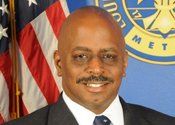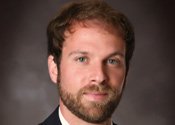
Photo: Louisville Metro Council
Neighborhood residents in two Metro Council districts will decide how a portion of the city budget is spent in their districts.
Our Money, Our Voice is an initiative of the Metro Department of Public Health and Wellness’s Center for Health Equity and Metro Councilmen David James (District 6) and Brandon Coan (District 8). Residents of those council districts will decide how $150,000 ($75,000 in each district) will be spent.
Our Money, Our Voice is the name of Louisville’s participatory budgeting initiative. Originating in Porto Alegre, Brazil in 1989, participatory budgeting is a way for members of a community to work together to better meet their needs while having a direct say in government decisions. In the process, people often find new ways of interacting with government and with each other to create solutions for all. Participatory budgeting has been practiced in the United States since 2009 in such cities as Hartford, CT; Greensboro, NC; New York and Chicago.

Photo: Louisville Metro Council
Initial funding for the initiative is coming from $100,000 in capital infrastructure funds ($50,000 from each district) and $50,000 from the Mayor’s Healthy Hometown Movement. Additional funding is being sought from foundations and private sources. Community residents will decide how to spend the money for physical improvement projects in each of the districts.
“Our Money, Our Voice is a pilot project — a new way for citizens to engage with government and decide how tax dollars are spent,” said District 8 Metro Councilman Brandon Coan. “It’s giving people real power over real money to make the decisions that affect their lives.”
“Who knows best about the needs of the community than the people who live there?” said District 6 Councilman David James. “Nobody can make better decisions about what a neighborhood needs than the residents of that neighborhood.”
The participatory budgeting process begins with the establishment of a steering committee consisting of representatives from the participating council districts. The steering committee then connects with neighborhood residents to develop ideas and create proposals for projects to benefit the neighborhoods. Finally, the residents in the metro council districts vote on how the money will be distributed among projects.
“Projects like Our Money, Our Voice are intrinsic to the work of public health,” said Dr. Sarah Moyer, director of the Department of Public Health and Wellness and the city’s chief health strategist. “Our vision is a healthy Louisville where everyone and every community thrives. Our mission is to achieve health equity and to improve the health of the people of our city. The best way to build a thriving community is to include everyone in the decision-making process from the start and participatory budgeting is a means to make that happen.”
District 6 neighborhoods participating in Our Money, Our Voice include Algonquin, California, Limerick, Old Louisville, Park Hill, Russell (the section north of Broadway Ave., south of Plymouth St., west of 22nd St. and east of 26th St.), Taylor-Berry, University and Victory Park.
Participating District 8 neighborhoods include Belknap, Bonnycastle, Alta Vista, Cherokee Triangle, Deer Park, Gardiner Lane – Upper Highlands, Hawthorne, Hayfield Dundee – Upper Highlands, Highlands Douglass, Original Highlands, Seneca Vista and Tyler Park.
Participatory budgeting was identified as a project that the community wanted to pursue during the My Dream for Lou Policy Summit hosted by the Center for Health Equity in October 2016. To learn more about the participatory budgeting process, the Department of Public Health and Wellness invites you to the kick-off event at the Heuser Hearing Institute Hearing and Language Academy at 111 E. Kentucky St. on Wednesday August 29 at 6 p.m.
 Weather
Weather Traffic
Traffic @LouisvilleDispatch
@LouisvilleDispatch @LouisvilleDisp
@LouisvilleDisp Subscribe
Subscribe
